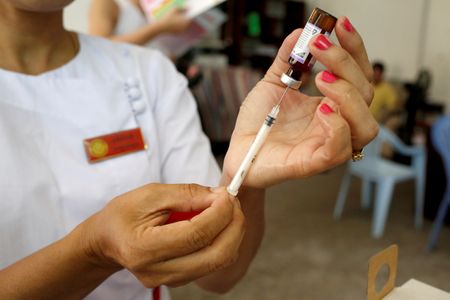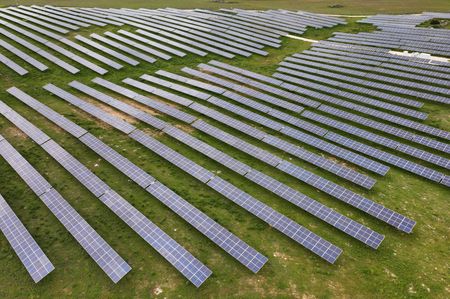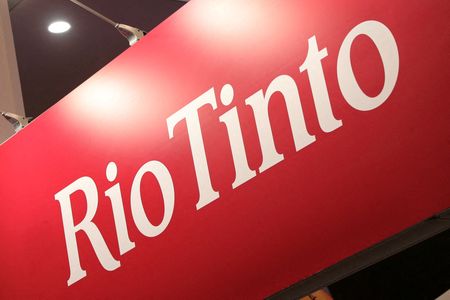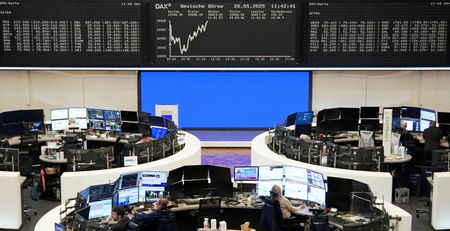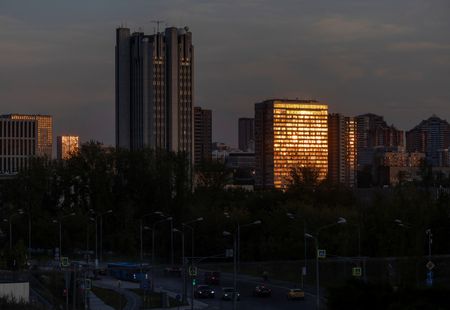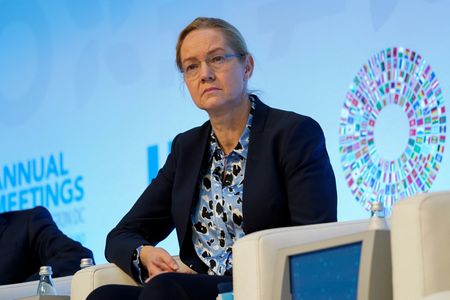By Jennifer Rigby
LONDON (Reuters) -Two global health groups that fund billions of dollars worth of critical medical aid – from childhood vaccines to malaria treatments – are in talks about merging some functions to help combat a financing crunch, their chief executives told Reuters.
The groups – the Global Fund to Fight AIDS, Tuberculosis and Malaria and the vaccine group Gavi – said they had been discussing working more efficiently together for several years, but a massive pull-back on government-funded aid budgets, led by the Trump administration, has given the talks more urgency.
“I think the crisis – and it is a crisis, what we’re facing in global health right now – is an impetus to think hard about the shape and structure of the global health ecosystem,” Peter Sands, chief executive of the Global Fund, told Reuters.
Gavi and the Global Fund set up a working group in autumn last year to work more closely together and explore merging some functions, joined by the World Bank’s Global Financing Facility for women and girls. The group’s work, which is ongoing, has not been previously reported.
“The idea is not to bring these massive structures together, the idea is to work better at the country level… to make life for countries easier,” said Sania Nishtar, Gavi chief executive.
Sands and Nishtar spoke to Reuters during the World Health Organization’s annual meeting in Geneva, at which budget cuts and efficiencies were high on the agenda.
Nishtar gave an example of Gavi in Nigeria helping local health officials give children measles and rubella vaccines, while Global Fund supported them giving bed nets to their parents to help prevent malaria. Previously, the two groups might have had separate desks, supply chains, data, staff, logistics, and guidelines, and even warehouses. That should be done better, she said.
Working together on rolling out the malaria vaccine, led by Gavi, alongside other malaria tools like preventive drugs, which the Global Fund manages, had also prompted greater cooperation.
The Global Fund is trying to raise $18 billion for its work from 2027-2029, and Gavi is trying to raise $9 billion for 2026-2030.
Donors told Reuters that they are pushing for efficiencies as they consider how much to pledge to the groups, which have saved millions of lives since beginning work in the early 2000s.
A Gavi spokesperson said it had started a voluntary departure scheme among its 650 staff and consultants and was working to streamline operations. The Global Fund has around 1,200 staff and declined to comment on potential cuts.
Advocates including Bill Gates, a major global health funder through his foundation, said he had been talking to governments about the essential role the two organisations play.
“Being an advocate and making sure the money is well-spent, that is part of my role,” he told Reuters earlier this month.
(Reporting by Jennifer Rigby, editing by Michele Gershberg and Elaine Hardcastle)

